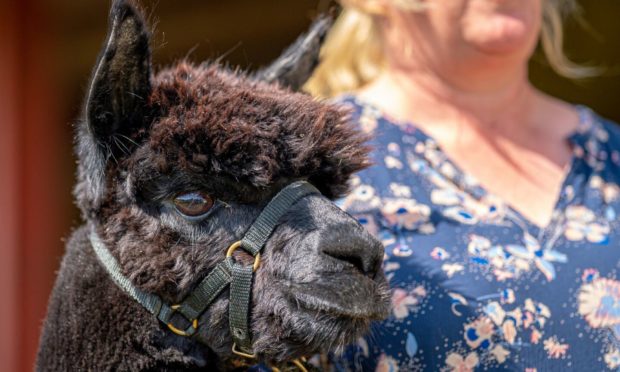There are two eight-year-olds facing a death sentence this week.
One has triggered public outrage, with a 90,000 signature petition opposing the killing, plus a mass demonstration in Downing Street. The prime minister’s father, Stanley Johnson – who looks exactly like Boris would if he’d ever discovered a comb – called for a halt to the “murderous errand”.
The victim is cute, I grant you, with black curly hair and dark eyes, but let’s have a reality check here: Geronimo is an alpaca, suspected of having bovine tuberculosis. The other potential victim is Boy X, an eight-year-old Hindu boy – anonymous for his own safety – who lives in Pakistan and has been accused of blasphemy.
I struggle to remember exactly what being eight feels like but I seem to recall that it involved Snow White and the seven dwarves moulds, bags of plaster of Paris, and painstaking but blotchy painting of Grumpy’s eyebrows.
The notion that an eight-year-old has any real comprehension of “blasphemy” and all its implications is absurd, yet Boy X was thrown into jail for a week and, if convicted, could face the death penalty. He is accused of intentionally urinating on a carpet in the library of an Islamic madrassa, where religious books were kept. Why he did so I have no idea, but delving into the mind of an eight-year-old is a job for a psychologist and not a prison warden.
We recognise the vulnerability of animals but not children
People certainly gathered publicly about his case as they have for Geronimo – but to protest at him being given bail rather than protect him. His temporary release sparked riots in the Rahim Yar Khan district of Pakistan, where troops were brought in to protect Hindus fleeing their homes to escape protesters.
Meanwhile, we’re told, Stanley wrote to Boris protesting about Geronimo (what a terribly British sentence that is), asking for a reprieve for the threatened alpaca. My son, the prime minister. Did Boris reply, like some overgrown Kevin the teenager? “Daaad! You’re so embarrassing! Why write when I’ll see you Friday? Ask mater if we can have jam roly-poly for afters…”
Why are we so quick to dismiss children as evil, sinful or just plain bad? It says more about us than them. Children are mirrors
The point is not to suggest that Geronimo, who has twice tested positive for the potentially catastrophic cattle illness, does not deserve another test, as his owner has demanded. Make sure, by all means. But there is something disturbing about a world in which people are prepared to recognise the vulnerability of all kinds of animals except the small human kind; where more fuss is made about a potentially sick alpaca than a potentially confused, disturbed or damaged child.
Kids reflect the society they grow up in
Why are we so quick to dismiss children as evil, sinful or just plain bad? It says more about us than them. Children are mirrors. They reflect the society they grow up in.
Boy X is not the only child failed by adults who we have heard about this week. In Zimbabwe, 14-year-old Memory Machaya died in childbirth after being forced out of school to marry.
.@UNZimbabwe notes with deep concern and condemns strongly the surrounding circumstances leading to the untimely death of 14-year-old Memory Machaya from Marange, who died while giving birth at an apostolic sect shrine.
Read the full statement here 👇#EndChildMarriages pic.twitter.com/Z9tkIc6PQ0
— UN Zimbabwe (@UNZimbabwe) August 7, 2021
The UN has urged the country to recognise child marriage as a crime. UN statistics illustrate the plight of the world’s children generally. In the last four years, the number of exploited child workers has increased by 8.4 million. Another nine million are in danger of being dragged into the workforce because of Covid, while an extra 10 million girls risk becoming child brides because of the pandemic.
A very confused world
Stanley Johnson, who I once interviewed, is every bit as engaging and funny – and as much of a shark – as you would expect Boris’s dad to be. The eccentricity is only the wrapper on a sweet but tough chew. Fantastic publicist.
In defence of Geronimo, he recounted his gap yah in Peru, where he saw herds of alpaca. “My heart leapt up when I saw the close-ups of the lovely Geronimo,” he told reporters.
You know what? I have seen some really lovely children close up, too. I wish Stanley would also put pressure on his son, the prime minister, on their behalf.
I find myself wondering how Boy X filled his time in prison, what confused emotions he experienced, and what lasting damage was done to him. What kindness or comfort did he find in the absence of his family?
Ironically, he would probably love Geronimo, like a Disney character – the quaint, curly-haired alpaca for whom there is so much concern. If only there was as much for Boy X.
There we have it: a tale of two eight-year-olds in a very confused world.
Catherine Deveney is an award-winning investigative journalist, novelist and television presenter


